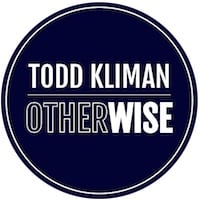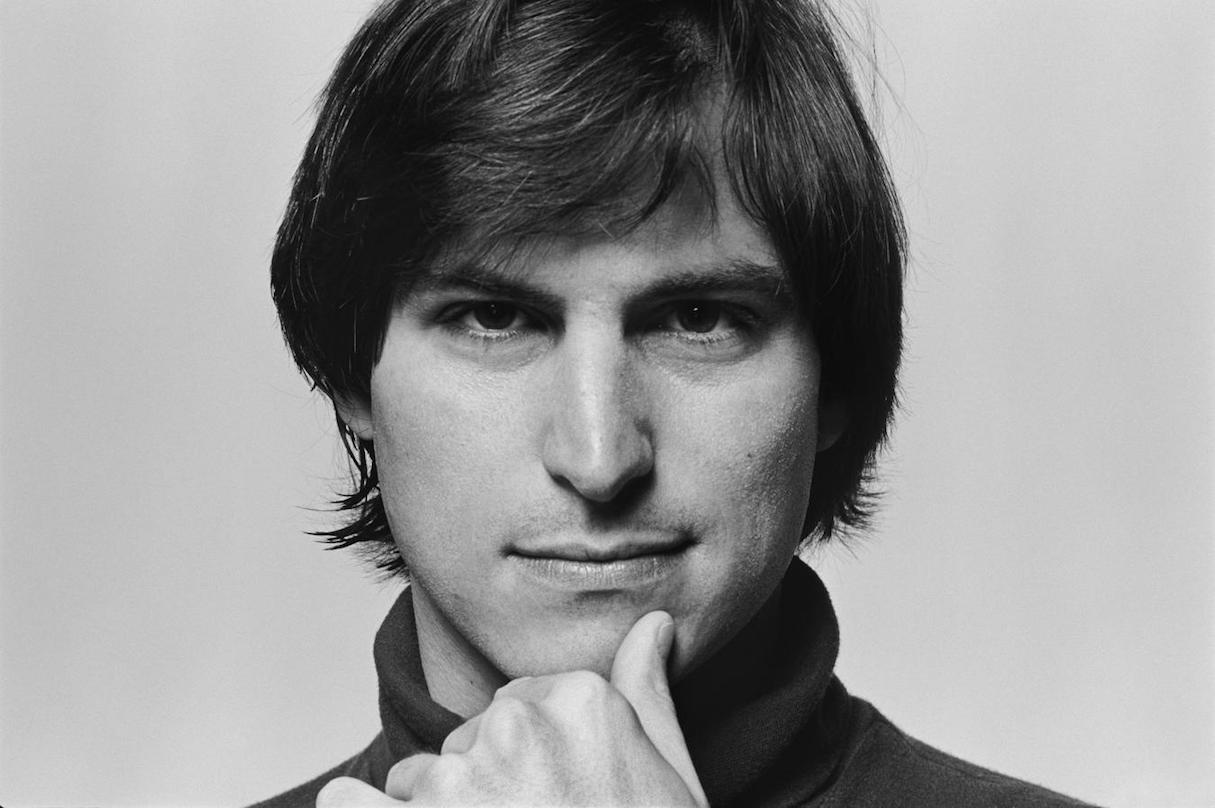
Five minutes into his new documentary about Steve Jobs, Man in the Machine, filmmaker Alex Gibney interjects himself, professing his incomprehension at the outpouring of grief in the wake of his subject’s death in 2011—the candlelight vigils, the tear-filled video tributes from strangers, the comparisons to Edison, Einstein, and da Vinci. What was it about Jobs that occasioned this “global wake”? He was not a musician who stirred strong feelings by linking his emotions with ours. He was not an assassinated president or beloved statesman. He was a corporate head with a net worth in excess of that of some countries, a maker of products, a figure few if any of his idolators had ever met personally.
Like Gibney, I was astonished by this cataract of sentiment for the Apple executive. Where Gibney was fascinated, however, I was repelled. Where he saw a cultural hero ripe for investigation, I saw another mirror of our fast, vapid, and hollow culture. I was discomfited by the endless hagiography in the media, the rush to canonization, and, most galling of all, the notion that Jobs, a businessman, was a kind of philosopher king. I was not driven to understand more about Jobs. I wanted to know more about the culture that would turn him into a god.
Man in the Machine (the first of two movies about Jobs to hit theaters this fall) has been called a critical look at Jobs, and the tone is certainly not hagiographic; there are several passages that delve deep into its subject’s moral blind spots. The problem is that the film isn’t penetrating enough. Its perspective is that of the disappointed believer.
A good bit of the first half of Gibney’s documentary is taken up with recollections of Jobs the man, in the form of interviews with his first girlfriend, Chrisann Brennan, and a friend, Bob Belleville, who later went to work for him. Brennan reveals, in a portentous, exposé-style confession, that Jobs filed court documents denying paternity of the child he fathered with her. Belleville is saddened by the person Jobs turned out to be—ruthless, single-minded, money-hungry.
These passages depend for their authority and power on our belief, as viewers, as consumers, that Jobs was endowed with the kindness and goodness of a saintly secular humanist.
No doubt there are businessmen in the world who strike a balance of work, family, and community, but Jobs, like so many other titans of industry throughout history, was not one of them. There was no balance—only work. I take it as a given that a businessman determined to change how the world operates has little time for anything but extending his domain, which means everything that does not advance the business (including, yes, a baby) is largely incidental. I also take it as a given that a businessman at Jobs’s lofty level is very likely power-hungry and not kind. Business is not about feelings; feelings only get in the way.
Why would anyone expect otherwise? It’s like expecting that a movie star be charitable and worldly, or that an athlete be broadminded and aware. Nice, of course, if it happens, sure, but why expect it? Why confess to shock or surprise when it turns out yet again that the famous person we think we know and like is a cretin? We don’t know. We barely know the people around us.
One of the great lies of tech, and Jobs played a crucial role in perpetuating it, is to make us think that the business world of Silicon Valley is fundamentally different from the business world of old—that the makers of chips and processors and software and gadgets are here not simply to line their pockets and extract maximum profit; they are here to help us, improve us, save us, redeem us. These companies with their cheery, unimposing names (Apple, Google, Yahoo) are housed in clean and gleaming structures, a conspicuous and self-conscious contrast with the dirty factories of the ’20s or the forbiddingly monolithic headquarters of the ’60s. Workers don’t sweat or strain, and they are not faceless bureaucrats; they’re kids, and kids-at-heart, who are afforded ample space to play frisbee and daydream on sprawling, sun-dappled campuses. Their products are not impersonal, like light switches or toilets or TVs; they are, as Jobs had it and endlessly advertised it, personal. Jobs’s initial notion of a personal computer—a small machine for one, as opposed to an intractable machine that served multitudes—became, over time, the notion of a computer that itself was personal, that could be made to transcend (in ad copy, if not in fact) its being a mere tool.
An MIT thinker and technologist, interpreting Jobs’s vision in one of the film’s early interviews, says that Apple’s products “are not for you; they are you.”
By which it’s meant, presumably, that they’re designed to be accessible, instantly familiar, and highly customizable.
But there is another, more insidious reading to this phrase: If they’re us, then we don’t exist except in those sleek glass cases. Our lives, far from having been expanded by new tools, have been thus bounded and reduced.
The triumph of Apple—and the triumph of tech, generally—is to have ushered in a new language of business. A language of business that sounds nothing like the old language, and that, therefore, can be made to deceive the unsuspecting, the uncritical, into thinking that something new is at hand.
Orwell wrote that politics begins at the level of language. To control the people is, first, to control the language. The iPhone is, thus, not a handheld computer; in Jobspeak, it is an “extension of oneself.” And Jobs and his disciples are not merely businessmen and technicians but also “poets and artists.”
Yes, poets and artists. Gibney himself uses the word “artist” in the film without irony. In an interview he gave to the Washington Post last week, he also referred to Jobs as a “storyteller.”
By what conceivable measure can Jobs be called an artist?
Artists are rarely if ever in the swim of society. They stand athwart it, the better to penetrate it. What the best of them produce is fundamentally spiritual, not material—the means to see through the falsehoods and fatuities of the culture, the innumerable corruptions at the level of language, the lies of the state.
Being a maverick and an innovator in an industry does not make one an artist. It makes one a smart businessman. The serious artist and the successful businessman could not be more fundamentally different in their aims and approaches. The businessman endeavors to give us what we want, devoting hours upon hours to researching the various shifts in the marketplace and spending great gobs of money in the process. The serious artist, heeding an inner dictate, gives us what we don’t want—disturbing us, shaking us from our complacency, waking us up to the truth before our eyes.
The reward for this truth-telling typically ranges from obscurity to disdain to outright hostility to threats of death. As a rule, it does not bring fortunes.
I don’t doubt that Jobs saw himself as a creator with a higher purpose; many public figures have believed themselves to be almost mythic creatures, endowed with gifts that elevate them into the realm of the saintly (and beyond the morals and norms of their day).
The question is: why did so many people choose to accept his legend of the self as truth? Why do they seem to want to believe that the tech world is a different world—a cleaner, better, and more enlightened world, a world in which businesses are not cutthroatedly capitalistic but instead speak to our highest and most civilized ideals?
A more insightful film would have situated the story of Jobs in the context of the American project, and shown us that here, again, what looks to be new is not really new at all.
Jobs was the product of two strains in the culture. One is easy to identify—the rugged romanticism that continues to define the American self-image, even as the country has grown into a vast and mighty empire with de facto colonies spread across the globe. Jobs burnished its myth, as one of those cowboys of industry for whom we reserve our greatest rewards, a dreamer-schemer who sets out alone and doesn’t play nice and triumphs against all odds. The other is harder to see because, although the culture turns on money, it doesn’t take kindly to discussions or examinations of its sources. But you can draw a line from Jobs all the way back to the Puritan thinkers, who saw something almost holy in the accumulation of a vast wealth. Those who amassed great fortunes were endowed with something otherworldly. They were possessed of the divine, and therefore closer to God. Here’s a little taste of Richard Baxter, the noted English Puritan and church leader: “If God show [sic] you a way in which you may lawfully get more than in another way (without wrong to your soul, or to any other), if you refuse this, and choose the less gainful way, you cross one of the ends of your calling, and you refuse to be God’s steward.”
You can hear, in this, a kind of precursor to the English theorist Adam Smith, who was not a Puritan but whose economic ideas became foundational in America in the 19th century. Smith coined the term “enlightened self-interest”: If you pursue and win a fortune, not only do you benefit yourself; you benefit your community.
Toward the end of the film, Gibney gives us an interview clip of Jobs reflecting on his accomplishments—an odd and fascinating interview, which somehow links Smith’s notion of a selfless selfishness with a kind of Hollywoodish Buddhism. Jobs, taking the long view of technological progress, says that the products of tech are not meant to last–an acknowledgment, I thought, of the built-in obsolescence that keeps Apple and businesses like it flush with money. I was stunned by this admission. What I was listening to, it turned out, was a piece of Jobspeak, which meant that a shrewd business practice was being pitched to the public as something else—something deeper, something purer. In rolling out a new, disposable product every couple of years, Jobs wants us to know, Apple is contributing to an ever-growing ladder of knowledge, with each update of phone, laptop and tablet leading the human race to greater and greater insights and collective wisdom.
In other words, we should not for a second think that its CEO was motivated by dreams of money, power, and influence. He was animated by visions of transcendence and the desire to better the human race.
Gibney, to his credit, devotes considerable time, near the end of the film, to examining the aftermath of the fire that killed two employees at the Chinese factory that manufactures Apple’s products, along with the unsafe and often abusive conditions under which the shiny toys of the First World are cranked out. There is another passage, also toward the end, that shows Jobs to be as sinisterly vindictive as a mob boss in punishing a Gizmodo journalist who happened to obtain a prototype of an unreleased iPhone.
The filmmaker wants us to be shocked—shocked—that Apple is responsible for such scandalously abhorrent behavior, and that the quintessential businessman of the age turns out to be just another businessman. The shock is that the public was so credulous as to believe that a corporate behemoth and its leader were as clean and pure as they were portrayed.
The name Bob Dylan is invoked more than half a dozen times in the two hours of running time, and the singer’s music accompanies many key moments in the narration of Jobs’s life. I also heard the names John Lennon, Einstein, and Edison. The name I did not hear—the name I expected to hear—was that of Henry Ford, who seems to me to be a far more plausible comparison.
Ford did not invent the car, just as Jobs did not invent the computer. He popularized the car, taking an invention that was, until then, for the elite, and democratizing it. He did this not just by making it affordable to the middle class; he also sold the public on the idea that his cars were essential to their lives, expressions of American vigor and independence. Eventually, the car supplanted the horse, forever altering American society.
Ford shifted the car from being a status symbol to another kind of symbol, a more resonant and powerful symbol: something without which life was impossible to imagine. He created a need, where before there had been none.
Sound familiar?
What both men did was to innovate within their industries, to “disrupt” (as the business world likes to say now) the existing modes of thinking and producing. They built better mousetraps.
You can say, as Jobs did, that you stand for the rebel, and all those dreamers and visionaries who seek to smash the idols. You can play Dylan at your product launches, and you can even invoke the language of the monk. But that doesn’t make you not a business, or even a different kind of business.
Only in America could we confuse art and commerce. Only in America could we think that money turns a man into a god.
In 1842, Charles Dickens made a tour of America that turned him from a believing idealist to a churlish skeptic. The writer was enamored of the noble, democratic republic he had read and heard about, but what he encountered was nothing even remotely as idyllic. America was callow, vain, and ill-mannered, and he couldn’t wait to return to England. Not only were the people depressingly ignorant of art and culture and the value they possess, but they were proud of the fact. In Boston, one captain of industry told him, with an apparently straight face, “Dollars, banks, and cotton are our books, sir.”
OtherWise is Todd Kliman’s weekly column.















